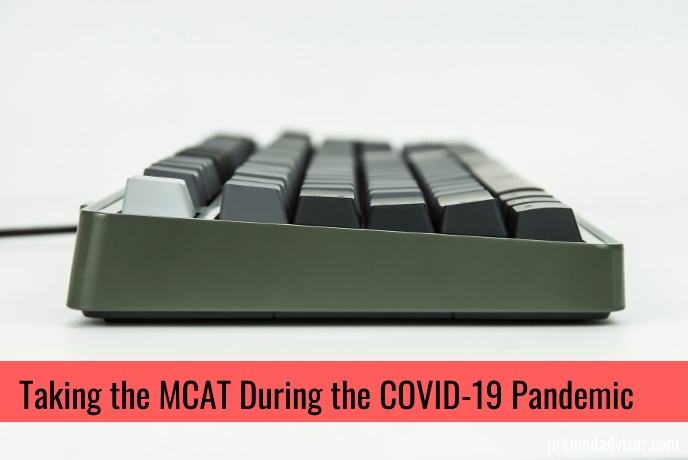Taking the MCAT During the COVID-19 Pandemic
If you are taking the MCAT this summer and early fall, you will need to adjust your mindset on how these entities cooperate to provide you the opportunity to take a required examination: the government, federal, state and municipal; the Pearson Vue testing center, a local branch of a for-profit corporation; the MCAT, a nonprofit branch of the AAMC; the novel coronavirus; and the current social movements.
No Longer a “Standardized” Test?
The AAMC standardizes the MCAT by adhering to psychometric principles. The pandemic and public protests add some wrinkles to that scenario. What happens outside the room before you go in might even distract you as the nearly six hour test drags on. Here’s an example of a convergence of these entities as reported by a medical school applicant who took the MCAT administered June, 2020 in Washington, DC (with some paraphrasing):
“At the center, before you go in to test, they have every person take off their glasses for examination. Glasses are set on a commonly used plate that is not disinfected between test-takers.”
“The protests are so bad downtown that ALL parking garages and lots, and most stores are not only closed but completely boarded up. I had to find and ask a police officer where to park because nothing was open. Street parking, even on weekends, is 3.5 hours max in DC. Meters can be filled with an app on your phone but you are not allowed to access your phone AT ALL while in the testing center. Moreover, you’re not allowed to leave the building to physically go feed the meter. The officer and another pedestrian I spoke with both informed me that the meter monitors have been scarce because of the protests, but I also shouldn’t blame either the police or the bystander if I got a parking ticket, or was towed. Luckily, I came back and DID NOT have any tickets waiting for me.”
“Because of the protests, multiple streets around the testing center were blocked off. If a candidate is scheduled to start testing in the evening, it’s important to note that things are often a bit crazier at night… especially on Saturdays. I could hear sirens flying all around the building. I worried that my car could be damaged on the street and just nervous in general of anyone who might storm the building.”
Who Is Disadvantaged by the Current MCAT Situation?
In 2020, we face non-standardized conditions in the medical school application cycle. Many medical school applicants will face extraordinary risks and obstacles in taking the MCAT: those who must drive or take public transportation to the testing center, don’t have adequate or comfortable PPE, are immunocompromised, don’t have COVID-19 antibodies, or are unable to secure an administration at their nearest testing center.
How to Prepare for the Coronavirus (COVID-19) MCAT
Here are our recommendations for your test administration:
- If you need corrective lenses and can choose between contacts and glasses, wear contacts.
- Have someone drop you off and pick you up at the testing center so you don’t need to worry about a vehicle or public transportation.
- Practice with different masks, particularly the fabric, where the seams are located (not going down your nose and mouth), and how they attach to your head or ears. Find the least distracting one that doesn’t collect moisture inside.
- Don’t be afraid to reschedule if the conditions at the center – or outside the center – are off-putting because that can compromise your focus during the test and affect your score.
- If protests have rendered the area of your test center outside your comfort zone, don’t feel like you are crossing a picket line to take your test. Your chance to make a difference in the woes of our world as a medical doctor depends on taking this test, unfortunately. Be brave.
Applicants whose loved ones are lawyers may hear that this situation is unfair, and does not have to be this way. The only way to change it is to raise your voice to the decision makers at AAMC. Medical students faced similar issues in taking their USMLE Step 1 exam this year. Are we sure conditions will improve next year if we do not report the need for change this year?
This unfair set of conditions is not the fault of any one entity, but instead falls between the cracks and fissures of an otherwise symbiotic non-profit/profit contract for services. It is up to you who may be affected adversely to recognize that this is an opportunity to take action. It is through leadership that the concatenations of many minor stakeholders are coordinated and made to act with integrity, responsibility and respect for test takers.
